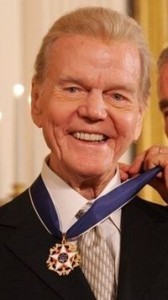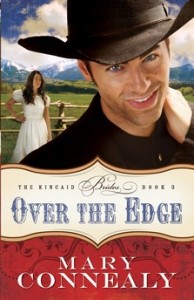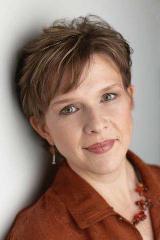***Special thanks to Susan Otis of Creative Resources, Inc for sending me a review copy.***
Now that I’ve read this book, God is going to be getting mail from me. This all makes sense.
Reading this book and making that decision has instilled a greater sense of peace in my life. I just need to listen more to hear that still small voice in my life.
I’ve not been giving God my mail for very long, so I can’t give you any personal results. But I trust our God and know He will always bless his children when we give Him the chance.
–>
Chapter 1
“I Am More than Able to Meet Your Needs”
And my God will meet all your needs according to his glorious riches in
Christ Jesus.
—Philippians 4:19
I had to deal with
financial hardship long before I became a single mother. During and after
college, I traveled as an evangelist, and I relied completely on monetary
contributions from other people. In this phase of my life, I would often look
around and think, Okay, who’s going to
help me now? The truth was, I had already learned that God would provide for
me. Whenever the funds I owed to a particular convention center or other venue
didn’t come in from the collection I took at the church where I was preaching,
then the money would be waiting for me in my mailbox when I got home. Yet, even
though I knew in my mind that I ought to trust God, it took a while for my
heart to catch up and internalize that lesson.
Learning to Trust the Lord as Provider
I was preparing for a
city-wide youth crusade, and I was excited because I knew that a lot of young
people would be saved and ministered to. But the question kept nagging me:
Where in the world would I gather enough financial support? Many people had
made a commitment to give money, but, when it came down to it, they had backed
out for various reasons. Just days before the payment was due, I was
ministering at a Sunday morning service in a small church several hours away.
As the service came to a close, I still didn’t have enough funds to cover the
payment, which was due the next day. I felt the Lord leading me to drive to
Oklahoma City that afternoon to attend an evening service there. I wasn’t even
thinking about the possibility of collecting funds there, because I wasn’t
scheduled to minister in Oklahoma City. Yet, I felt very strongly that the Lord
was telling me to go there. So, I got in the car with my young companion, Shea,
and we drove to Oklahoma City. We arrived just in time for the evening service.
Much to my surprise, the
youth pastor who was leading the service began to talk about our upcoming youth
crusade! Someone in the congregation stopped him and said, “The young lady
evangelist who’s holding the event is here tonight.” The youth pastor then
asked me to come up to the platform and share about the crusade. I did, and
when I had I concluded my remarks, he took the microphone back from me and said
to the congregation, “This is a God thing, and if God tells you to help her in
any way, please do.”
As the service let out,
Shea and I moved about on our own, shaking hands with the congregants and
talking to some of them. When the crowd had dispersed, I was left standing
alone—without having received any financial gifts. I met up with Shea, and we
started making our way outside to our van. Shea said, “Did you see that lady in
the last row who was in a wheelchair?”
“No,” I replied.
“After the service, she
motioned for me to come over to where she was, and she asked what we needed,”
Shea went on. “I told her, ‘Seven thousand dollars by tomorrow morning,’ and
she wrote me a check!”
Talk about something to
shout about! We were both excited and bewildered. But then, worry put a damper
on my excitement as I thought, What if
her check isn’t any good?
The next morning, Shea
and I went straight to the bank. When we presented the check to the teller and
asked her to cash it, a strange expression crossed her face. She asked us to
take a seat in the waiting area for a minute. My mind began to go wild with
worry. This is a bad check, and they
think we’re responsible, I
thought to myself. What if they’re
calling the police? What if this? What if that? The minutes that passed
felt like an eternity. Finally, the teller returned to the window. She
apologized for the inconvenience and told us that she had called the woman
whose name was on the account to verify that she’d written the check for
$7,000. She then informed us that everything was fine, and she cashed the
check. Hallelujah!
The Lord taught me a
valuable faith lesson that day—to trust Him to provide, even if it meant relying
on the least likely of avenues. The last person I would have expected the
necessary funds to come from was a lady in the back row of a church in Oklahoma
City where I hadn’t even been scheduled to speak. Part two of that lesson was
when God said, “You had enough faith to get that check into your hand, but you
didn’t have enough faith to believe that it was good.” It’s true—I didn’t. But
God was teaching me to look to Him alone, and never to man, for my provision.
You Never Know How He’ll Meet Your
Needs
Father God will always
get His provision into our hands, but the channel through which He sends it is
often the channel we would consider the least likely. I’m convinced that the
Lord “sets us up” to build us up. The “setup” is that the funds never come from
the expected source, and the “build-up” is for our faith. Father builds our
faith on every step of this marvelous journey we are on with Him, as long as we
trust Him.
Look to the Lord Alone
When we are in the midst
of financial pressure, we have to be careful not to get angry and upset with
those around us whom we think should be helping us. This is true for all of us,
no matter our position—whether we’re single parents, businesspeople, pastors,
and so forth. We should always look to the Lord for our provision and not rely
on the arm of the flesh.
God taught me this
principle long before I became a single mom, but I forgot this particular faith
lesson when met with the mounting financial pressures I faced when I was
suddenly in the position of having to care for a newborn baby on my own and
without a steady source of income. Basically, my faith in God’s provision went
out the window.
One day, as I stood
staring at my file cabinet and pondered the bulging folder of bills marked
“Due,” I began to get angry. My dad could
write one check and pay off every one of my bills, I thought, and he wouldn’t even miss the money. As
the bitterness mounted in my heart, the Lord spoke to me. “It’s not his
responsibility to pay your bills now that you are grown,” He said. “But I’m
your heavenly Father, and I can write one check and pay every bill you have.
And I definitely wouldn’t miss it, because I own it all.” He went on to say
that He not only could, but He would, if I would only trust Him.
Wow! God has a way of
getting right to the point with a word of truth. The truth was, I shouldn’t
have been looking to my dad—or any person, for that matter—to be the source of
my provision. My heavenly Father was just waiting for me to look to Him. And
today, your heavenly Father is waiting for you to look to Him for your every
need. Jesus instructed us to pray,“Give
us this day our daily bread” (Matthew 6:11 nkjv).
It doesn’t say, “Give us this day our monthly bread”; it says “our daily bread.” I don’t know about
you, but I kind of like to have the whole month budgeted out. And, if at all
possible, I like to know my budget for the upcoming year! But God doesn’t
usually work that way. His way requires us to place our trust in Him and to
walk by faith.
It’s in His Hands
God got through to me
loud and clear that day—so clear, in fact, that I began to treat every incoming
bill as if it didn’t have my name on it. As I mentioned before, I started
leaving it up to God. When I would go to my post office box and find a pile of
bills, I’d simply look up and say, “God, You’ve got mail!” Then, I’d take God’s
mail home with me and place it in the folder labeled “Due.” I wouldn’t open
that folder again until the money was put in my hand. At that time, I’d say,
“Okay, God. Which of Your bills do You want me to pay for You?”
My mortgage payments,
utility bills, and all other expenses were always paid on a monthly basis,
despite my lack of a steady income. Even with my ex-husband’s delinquent child
support payments, God saw to it that we never paid a single bill late.
All that You Have Comes from Him
The Lord taught me that
everything I have comes from Him. Every dollar, every meal, every piece of
clothing—everything I have comes from Him. He taught me to ask Him what He
wanted me to do with every dollar that came into my hand—that was an important
key to having all of my needs met. After all, we have this assurance in
Philippians 4:19 (nkjv): “My God shall supply all your need according
to His riches in glory by Christ Jesus.” If my needs aren’t met, something
is wrong. Maybe I spent God’s money on something I wanted or thought I needed
instead of paying one of His bills. As we learn to ask God what He wants us to
do with every dollar He puts into our hands, we can be free from stress and
worry. When we receive bills in the mail, we can simply look to the Lord and
say, “God, You’ve got mail!”
Trust Your Provider, Not Your Provision
The Lord often tests us—a
truth I was shocked to discover as a new Christian. In Exodus, we have an
example of God testing the children of Israel for several reasons, but
primarily to see whether they would respond in obedience and to gauge their
heart attitude toward money. It was a setup to see whether they would trust in
God and rely on Him to provide for their daily needs on a daily basis.
God provided food to the
Israelites while they were fleeing Egypt. It came in the form of manna, which
fell daily from heaven. “The Lord said to Moses, ‘I will rain down
bread from heaven for you. The people are to go out each day and gather enough
for that day. In this way I will test them and see whether they will follow my
instructions’” (Exodus 16:4).
A passing score on the
Israelites’ part would have been one that proved their complete faith and trust
in the true Provider, not their provision. And this is a test that each of us
must pass. Sometimes, we get used to trusting in our provision—our paycheck,
for example—that we lose sight of the One from whom it came. We just cruise
through life, never realizing that our trust has shifted from the Source of
everything to our salaries. When this happens, our trust in God weakens to the
point where, if we lose a job, go through a divorce, or face an overwhelming
situation that causes financial strain, we find it hard to hang on because the
thing we’ve trusted in is slipping through our fingers.
Our heavenly Father
promises to supply our daily bread—all of our needs (Philippians 4:19). But we
can’t plead the promises of God if we aren’t living by faith in God. One
covenant benefit of being a child of God is the confidence that He will keep
His part of the covenant and supply whatever we need. We need to rest in that!
Trust in His Promises
When you go to the
doctor’s office for a checkup, the receptionist asks you to produce your
insurance benefits card. So, what do you do? You pull it out of your wallet
with confidence because you know you have benefits! You don’t say, “I have
benefits, but I’ll go ahead and pay for this visit out of pocket.” That would
be foolish. And it’s the same when it comes to our covenant benefits as
children of the King. Pull out your list of benefits—the Bible—to find a
detailed compilation of all of the covenant blessings that belong to you. Those
blessings include health, provision, peace, and joy, to mention just a few!
Heaven doesn’t have any
bread shortages, so don’t walk around with your head hanging low. Hold your
head up and boldly stand on the Word—your benefit Book—as you trust God to give
you your daily bread. Your means of provision may change, but your Provider is
the same yesterday, today, and forever (Hebrews 13:8). Psalm 37:25 says, “I was young and now I am old, yet I have
never seen the righteous forsaken or their children begging bread.” So,
don’t worry. God has never forsaken the righteous, and He isn’t about to
abandon you. Never will you need to beg for bread. You may need to exercise
your faith in Him to receive your daily bread, but that’s a great place to be,
because your intimacy with the Father grows as you rely on Him more and more.
Building Trust by “Just Enough”
When the children of Israel
were crossing over from the land of “not enough” (Egypt) to the land of “more
than enough” (the Promised Land), they had to walk through the land of “just
enough” (the desert). In the desert, they had just enough for that day. They
didn’t lack, yet they didn’t have an abundance of food or provisions. They had
just enough—their daily bread, or manna, from heaven.
Similarly, when Jesus
commissioned the Twelve Apostles, He gave them the following instructions: “Take nothing for the journey except a
staff—no bread, no bag, no money in your belts. Wear sandals but not an extra
tunic” (Mark 6:8–9).
Whenever we cross over to
a new place or ascend to a higher level, we come through a period in which we
have to rely on what I call the “daily bread.” Why is this period necessary to
pass through as we move up to the next level? Because the next level will
require an increase in faith and trust in God.
Every time our ministry
is about to cross over to the next level, I’m required to walk through the land
of “just enough.” It isn’t fun, but what should we expect from a process that’s
meant to kill the flesh? This is the reason many people choose to remain in
their comfort zones rather than crossing over into their “potential zones.”
Over the years, each time
our ministry has outgrown its office space and decided to relocate to a larger
facility, the larger facility inevitably cost more—and I had to believe God to
give us the extra funds every month. As I stepped out in faith, we had just
enough to make each monthly payment. We never had any extra money, but we
always had just enough to meet the payment. It was as if God was doling out our
daily “manna” during these seasons of crossing over to the next level.
The same process applied
to me as a homeowner. When I first bought my house, I had just enough money to
pay the mortgage and utility costs every month. Groceries weren’t even in my
budget! But God always made sure that I had enough, even if it didn’t look very
promising on paper. It’s during this “daily bread” stage that we are
continually stretched and our faith is challenged to grow. These seasons are
never comfortable to the flesh because they are designed to rid us of all waste
and excess. The flesh has to be disciplined in order for us to climb to a
higher level.
Don’t Get Too Comfortable, or You
Might Just Get Stuck
One problem with our
flesh is, it likes the familiar. We grow comfortable with what we know, to the
point where, when God calls us to journey to a better place, we don’t feel like
moving. The manna for the Israelites was a temporary provision. God didn’t plan
for them to remain in the desert dining on manna for the rest of their lives.
It was their provision for the process of crossing over to the Promised
Land—the land of more than enough. They could have made the transition in a
matter of eleven days, but, because of their grumbling, complaining, and
unbelief, they took forty years to cross over. Imagine—four decades of eating
manna!
When your manna begins to
dry up, it doesn’t mean you are going backward. It means you are going
forward—forward into the Promised Land. Exodus 16:35 says, “The Israelites ate manna forty years, until they came to a land that
was settled; they ate manna until they reached the border of Canaan.” They
were given manna until they crossed over to the destination God had been
leading them to all along.
In my own life, as well
as in the lives of others, I have seen the “manna” begin to dry up on the
precipice of a divine destination. At that point, the flesh screams out, “Don’t
mess with my manna!” The provision I initially resented has become familiar,
and my flesh resists any further growth that’s required for me to cross over to
a new place, even if it’s a better place.
I was ministering in a
city when I met a Christian woman in need of physical healing. In the middle of
a miracle service, the Holy Spirit began to move in her, and she received her
healing. Later, she told me that instead of rejoicing over the healing she had
received, the first thing she thought was, Oh,
no! I’m not going to receive my disability check any longer.
When God messes with our
manna, we can get a little worried if we have been depending on the manna for
any length of time. Due to the financial strains I faced after my husband left,
I became a participant in the government-sponsored Women, Infants, and Children
(WIC) program when my daughter, Destiny, was very young. I received formula,
cereal, milk, peanut butter, and a couple of other items each month. We were
beneficiaries of this program for about eighteen months, while I got back on my
feet, financially. One day, when I was filling out the paperwork to reenroll in
the program, the Lord spoke to me and said that it was time to get off the
“manna.” I reached the part where it asked me to write the income I expected
for the next six months. As I went to fill in the amount, the Holy Spirit spoke
to me again, saying, “Is that what you are expecting?” I had been praying for
God to increase my monthly income to a certain amount—an amount that would have
disqualified me from the WIC program. I was faced with a dilemma: trust in God,
or trust in WIC—the “manna” I had grown accustomed to relying on. I knew I
could count on my manna. What was I going to do without it?
I was going to cross over
to the next level—that’s what I was going to do! I wasn’t going to need my
manna any longer, but I needed to take a step of faith. I decided not to
reenroll in the program, and I never went back on WIC in the years that
followed, because I knew God had spoken to me, even though my flesh was
screaming out for the manna.
It was amazing! Very soon
after I obeyed the Holy Spirit, my income increased—sure enough, by an amount
that exceeded the WIC guidelines. What is the “manna” in your life that has
begun to dry up? Don’t get nervous when God messes with your manna—it’s a good
sign. It means that you are about to cross over to your Promised Land, the land
of more than enough. Don’t get stuck on the manna. God has something much
better for you.
God Is All You Need
When you take what you
have and you look to the Lord, you will always have more than enough. Remember,
He owns everything—it’s impossible to “overdraw” on your account of covenant
blessings from Him!
A good illustration to
help you remember this truth is found in the biblical account of the feeding of
the five thousand. Matthew 14:19 says, “Taking
the five loaves and the two fish and looking up to heaven, he gave thanks and
broke the loaves. Then he gave them to the disciples, and the disciples gave
them to the people.” Jesus took what he had—that was His starting point.
And that’s where most people quit. They look at their resources and they get
depressed and discouraged, feel sorry for themselves, or try to manipulate
others to give them resources. Just simply take what you have.
Second, Jesus looked up
to heaven. Don’t look down—look up and hold your head up. This is where your
faith and your trust come in.
Then, third, Jesus gave
thanks. Stop complaining about what you don’t have and start praising God for
what you do have. A grateful heart of thanksgiving is always a forerunner for
an increase in blessing. If you aren’t thankful for what you have, why would
God give you more?
Fourth and finally, Jesus
took a step of faith. Although He had only five loaves and two fish, He started
giving out what He had—now, that was a step of faith! When we take a step of
faith and just start doing what we now we should do, provision will always be
there.
Matthew 14:20–21 says, “They all ate and were satisfied, and the disciples
picked up twelve basketfuls of broken pieces that were left over. The number of
those who ate was about five thousand men, besides women and children.” They
all ate—all five thousand men, along with an additional number of women and
children! Not only did they all eat; they were all satisfied. They didn’t just
get an appetizer. No one left hungry. And, on top of that, there were twelve
basketfuls left over! Now, don’t tell me that God doesn’t do big things with
small resources. He rarely did big things with big resources, but He always did
big things with small resources.
Father God wants you to
take what you have, look to Him, give thanks, and then take a step of faith as
you walk in obedience. Don’t despise small beginnings. Don’t let the size of your
resources, the size of your storm, or your perceived mistakes hold you back.
Father owns it all, and He is ready and willing to meet all your needs!
Little Keys to Abundant Provision
Key #1: Trust your Provider, not your
provision.
Questions for Reflection and Personal
Application
1.
Have you ever found yourself faced with a
financial need that you never would have been able to meet on your own? What
was the outcome?
2.
Do you make a habit of seeking the Lord’s will
regarding how you manage your money? If so, what kind of direction has He given
you in this area?
If not,
what can you do to invite God to become more involved in your fiscal
management?
3.
Have you ever passed up an opportunity for
promotion or progress because you were “stuck” in the familiar? What was the
result?
Prayer
Ask God to help you to trust Him as your
provider and to rely on Him to meet your needs as you seek to obey His Word and
follow His will.
















